#raziye hatun
Text
Scenes I would have liked to see in Magnificent Century (always being updated)
These are just things I would have liked to see, or honestly just hyper specific scenes I’ve envisioned in my own head. Don't come at me about realism. That's not why any of us are here.
Would love to hear everyone's opinions and what you would have like to see in the show!
Hürrem telling Suleiman about Leo and him accepting it
A big part of Hürrem’s power in the harem in the show is that she got away with a lot of things, whether it be through manipulation or Suleiman’s love for her, but mostly it was through being smart and manipulative. That’s a huge part of her character, but it would have been nice to see a moment where she doesn’t win and has to come clean to Suleiman. His acceptance of Leo would have made their love more genuine in my eyes. He knew she was a slave and had a life before him.
Hürrem's past as a priest’s daughter
When Hürrem went to Edirne, it would have been great to see her open the palace to the sick and nursed them instead of sitting there helplessly in literally one spot the whole time. We saw her help Hatice medically in seasons 1 and 2 and she was a priest’s daughter so we know she saw a lot of sickness and has some basic idea of giving aid.
Hürrem seriously going off on Suleiman at least once
Again, a big part of Hürrem's legacy was how nuts Suleiman was for her and how she could get away with things other concubines couldn’t. I would have liked to see her really loser her temper at him at least once. Maybe go off about how difficult it is in the harem, being a woman battling for her life and her kids’ lives. It would have made their relationship seem deeper than it was in the show.
Generally seeing Suleiman's absolute obsession with Hürrem
That man was nuts about her in real life. True Gomez and Morticia Addams.
Some good moments between young Mustafa and Hürrem
Like thanking him for saving Mehmet from drowning in the first season or saying, “Thank you for being such a good big brother to my son.” She protected him during the janissary riots, but we didn’t see much day to day interactions between them. It would have made the distancing between them more impactful.
Another grown sultana in the family, like Mahidevran’s daughter Raziye
It would have been great to see the dynamic between Mihrimah and another daughter, especially one that was older but still within her age range. The aunts were older than her and she constantly had to show them respect, so it didn’t feel like a fair fight. And Esmahan had to defer to Mihrimah too because she was the Sultan’s daughter. Another daughter who is equal to Mihrimah in most ways would have been fun.
Hürrem pulling away during the whole Firuze thing
Hürrem had to stay on Suleiman’s good side because he’s the sultan, but I would have loved to see her pull away from him in small ways, like not spending time with him or choosing to eat alone and not with him. I’m a sucker for a good grovel.
Suleiman actually apologizing for things he’s done
Again, I love a good grovel and it never happens in this show. He always just got sick and woke up and told Hürrem how much he loved her. This goes into Hürrem pulling away during the Firuze arc and showing Suleiman her love is reasonably conditional. Again, real life Suleiman was whipped for Hürrem.
Ibrahim and Hürrem bonding at least once over being slaves and considering what their lives might have been like at home
This kind of goes into my last point of Hürrem pulling away from Suleiman when he was with Firuze. I always thought that would be a great scene when they’re having dinner with the dynasty members when Firuze was in the picture. I envisioned Hürrem mulling about her “home” in Eastern Europe and confusing the dynasty about what "home" to her seems to mean now that's she's pretty unhappy, then asking Ibrahim in front of all of them what he thinks his life might have been like if he hadn’t been taken. This could have given way to a deep scene between Hürrem and Ibrahim as well as a sweet scene later on of Suleiman asking Hürrem to share her memories of her home.
Firuze slowly losing favor instead of an instantaneous decision
There are so many deus ex machinas in the show that act as resolutions to issues and the Firuze thing was one of them. I would have liked to see her slowly lose favor, like treating Cihangir without permission from Hürrem or Suleiman, being disrespectful to Hürrem in front of him, or butting in on the family grieving Mehmet’s injury.
Hafsa and Hürrem bonding over something other than hating Mahidevran, like the loss of Hürrem's unmentioned son
It was great to see her realize Mahidevran’s manipulations, but I hoped for a deeper resolution between her and Hürrem. We only see Hafsa acknowledging Cihangir’s illness like once or twice, which is so out of character, but I know they were trying to keep her firmly in the area of antagonist (crappy writing). Hürrem had another son, Şehzade Abdullah, who died as a toddler. Losing a child would have been a good bonding moment for them and brought them back as mothers.
Hurrem’s kids speaking Russian(?)
One thing I always found wholesome is when children speak the language of both parents. It would have been a great homage to Hürrem's roots, since we didn’t see it a lot, especially in season 3. On that note, I would have liked to see Hürrem revert to her native tongue when she lost her temper, since that’s super common.
Mercan going over to Hürrem's side and staying in Season 4
One of Hürrem's best character traits was her ability to make her enemies her friends and Mercan was a great enemy. Convincing someone who was so zealously devoted to another dynasty member to come over to her side? Iconic. His and Sümbül's dynamic was also great and watching them being forced to work together would have been fun.
A reunion between Hürrem and Gulnihal, maybe Hürrem meeting Gülnihal's kids and husband and seeing Hürrem's kids grown
Characters tend to disappear and never be mentioned again in this show despite their big influence on characters and their development. She should have gotten a kiss on the hand like Hatice and Suleiman did for Afife. She raised Hürrem's kids.
Ibrahim telling Suleiman to stay out of his marriage during the Nigar affair
This is probably the most unrealistic thing I envisioned, but I love when one character beneath another in rank or station stands up to that person as a friend. And Ibrahim was getting bolder throughout the seasons so it wouldn’t have been totally out of character.
Hürrem helping Nigar escape with her daughter instead of Firuze
The whole Hürrem helping Firuze escape thing made no sense but it was in there to prove that Firuze was a spy. I think I speak for everyone in this fandom when I say I would have liked to see Hürrem help Nigar and Esmanur escape instead and the whole kidnapping Mihrimah’s baby thing not happen. But it would not hinge on the writer's hating Nigar's character and making her lose her mind and betraying Hürrem for a man.
Mihrimah being Selim’s valide sultan
Mihrimah was well aware of the fratricide law, it was the whole reason she worked with Hürrem to kill Mustafa. She wasn’t so naïve to think her own brothers wouldn't get caught in each other’s crosshairs. Kösem forgave Osman for killing her own son, I don’t think it’s out of the realm of realism to see Mihrimah and Selim get back on good terms. It’s one of my favorite parts of her real life legacy.
Suleiman letting Hürrem do something really shady for him at least once
He couldn't get his hands dirty, but he knew at least to some degree how cunning his wife was, even if he was willfully blind to it. Would have loved to see a "I won't ask questions" kind of conversation between them and Hürrem strolling from the room like a hitman for hire.
Cihangir seeing some sort of consequences for his naïve support of Mustafa
As wise as he was, he was so painfully naïve when it came to Mustafa, seeing him face some consequences for that would have been satisfying.
Suleiman seeing more negative ramifications of sending Hürrem away in S3
Suleiman tended to send Hürrem off willy nilly because he could and not really take into account for the ramifications, especially in such a charged atmosphere. Seeing consequences to those choices would have been satisfying and would have reinforced Hürrem's importance as a partner, parent to adolescent children, harem ruler, etc.
Mihrimah’s trip back to the palace in S2 after Hürrem was ambushed being more difficult, like an actual kidnapping
I really like antagonists being taken down by their own hubris and it would have been fun to see Hafsa suffer real consequences for her fake ambush.
Hatice going off on Hafsa about how she treats Hürrem at least once in S2
She questioned her a few times in season 2, like when Hürrem's horse was stabbed. She did it a few times in calm ways in season 1 and once or twice in season 2, but seeing her lose her temper even a little would have been satisfying. I think this could have more happened if they had stuck to actual history and Hafsa had come as a slave and not a princess.
Suleiman seeking more comfort in Hürrem
Suleiman was described as “weak” for Hürrem and it wasn’t really shown in his more emotional moments. The show expected us to be fine with his speeches and poems and see basic expressions of affection as “weakness.” When Ibrahim died, I would have really like to see him break down with Hürrem, his face in her stomach, the whole nine yards. He really just glared at her in that scene.
Hürrem and Suleiman being more of political and personal partners
In the show a lot he tells her to “mind her business” and “don’t get involved in things that don’t concern you.” He also blew her off and treated her like a child when she voiced certain concerns (his condescending little smiles made me feral). A big part of her legacy was being an advisor to him and their abilities to share with each other what they couldn’t share with others.
The real importance of Hürrem's new haseki status and what that meant
This was such a thing for me. Hürrem being the first with the haseki status was HUGE in the harem at the time but that whole story line was abandoned for the sake of rivalry between her and Mahidevran, which would have been there regardless. I hated seeing Hürrem curtsy to the sultanas in later seasons, especially in season 4 when Vahide was the actress. It was like having to watch Hafsa curtsy to anyone.
Mihrimah pulling away from Hürrem more during her engagement/marriage to Rüstem
"Yeah, I'm doing this for my brothers but do you expect me to happy about it? Gush and fawn over having a kid with a man who kind of repulses me? I have postpartum depression? I'm super unhappy so I can't imagine why." Like I've mentioned before, big fan of having a character's ego come back and bite them and I think Hürrem should have suffered more consequences for basically telling Mihrimah her happiness doesn't matter. She was a little delusional in S4, acting all coy, telling Mihrimah she still loves Rüstem and they would find their way back to each other. Girl...she never liked her husband, stop trying to act like her homegirl and push her to be happy in a marriage she would have rather died than be in.
Gülfem standing up to Hatice at least once
Hatice had a real high horse sometimes and even if she was insulting someone else, I could tell it made Gülfem feel a certain way because she was also a slave. This is yet another character I would have liked to see lose their temper in a more aggressive way. Like, girl, have some character development.
Some sort of resolution between Mihrimah and Esmahan
Mihrimah had pretty much know other girl her age to lean on, I think it would have been easier to invest inheritance character if you saw her break down maybe once with Esmahan instead of trying to be tough. Like when Esmahan went to comfort her before her wedding. Mihrimha’s fake tough persona in that moment seemed hollow and just like a young bratty kid. Or when Humasah was kidnapped.
Bali Bey manhandle the sultanas a little bit during their questioning about Hürrem's disappearance
I’m going to get a lot of flack for this one. I don’t mean him really putting his hands on the actresses, I mean like grabbing Şah's arm when she leaves. I like seeing haughty characters being taken down a peg. They would have seen they’re not as infallible as their status makes them feel.
More bonding between Gülfem and Hürrem at least once
Gülfem lost a child and saw what Mahidevran and Hürrem had to go through fearing for their own sons. Hürrem had the chance to pay Gülfem some sort of compliment on the balcony when Cihangir was sick, like "I'm not as strong as you." Out of character, but this is basically an OOC post.
Hürrem let some things take their natural course
Like when Mahidevran discharged Esma when she took charge of the harem. Suleiman would have caught on eventually that Hürrem was constantly unable to spend time with him due to taking care of 5 kids, or having to train brand new concubines.
Hatice being happy with her new husband
I really liked him.
Hatice getting some closure about Sadika
A big part of Hatice’s early character was her empathy for those below her (most of the time). She liked Sadika and wanted to see her happy and I’m sure Sadika had grown some affection for Hatice. I would have like to see Sadika write a letter to Hatice before attempting to murder Suleyman saying something along the lines of “I’m sorry for lying to you, my friendship with you was real but this was more important.”
Hürrem coming together with one of Suleiman's's sisters just as a fellow woman
Maybe when Lutfi hit Şah, Hürrem was there and Şah let her pull her up off the floor. They were all women and mothers stuck in a patriarchy.
Mahidevran give Helena permission to clap back at Fatma
In that scenes when Fatma was like "Did you really think you were going to marry him?" Saying something like, "At least he wanted to marry me" and Mahidevran laughing.
More affection between the concubines and other harem members and the royal kids
They were all raised in the same harem, I'm sad we didn't get to see some found family-ish dynamics. Those kids must have had a lot of "aunts and uncles" in the servants. I'm sure Mihrimah saw more than just one or two of the concubines as mother/aunt/sister figures, especially as the Sultan's only daughter.
A better ending for Gülfem
Because what the fuck was that?
Mihrimah going off on her aunts at least once
While she had to defer to them because they were older and was an unspoken respect thing, she could get away with talking to them a certain way more than maybe Hürrem could. "I know you're trying to kill my mother and that can't happen because then what happens to us?" or "I know you killed Nazil, who raised us, and you thought we'd never find out and see you differently? Stop acting like you give an absolute flying fuck about us when you know what will happen if our mother is killed or Mustafa becomes Sultan. This is war."
Hürrem showing more affection to adult Mihrimah
She absolutely had to defer towards her sons' safety, but sometimes she acted like she actively disliked her only daughter in S4.
Mihrimah not being a brat when she was young (S2)
It would have made her rise to power more impressive and more endearing. Sometimes older Mihrimah just seemed like a princess who had never been told no so she always expected to win.
Mahiedvran and Hürrem sharing one sincere hug
They had more things in common than not. They were both women, mothers, slaves stuck in a patriarchy and both could lose their sons with one decision from a man who has complete control.
Hürrem having more quietly pervasive PTSD symptoms.
She displayed plenty of symptoms like hyperarousal, emotional over-stress, emotional dysregulations, hypervigilance, etc, but a lot of symptoms can be more quietly sinister and they missed that chance. The symptoms they did display first and foremost took away from her character because we couldn't differentiate all the time between angry Hürrem and traumatized Hürrem. "She's angry and violent and irritable? Oh, that's jUsT HüRrEm."
More rank-opposite hand kissing
One trope I will forever and forever always live for is shows of deference opposite of rank. When Suleiman and Hatice kissed Afife's hand? Loved it. Suleiman kissing Hafsa's hand? Not totally the same, but kind of still love it.
Afife telling Şah and Hatice she was ashamed of them at least once
Would have rocked their shit. And you know she for sure was.
Mihrimah being happy with Taşlıcalı in the end
Probably the second most implausible head canon. They had both lost a lot and know what war costs, why not end up with another person who can empathize with your unique pain?
More of Gülfem and Hürrem's real historical relationship
Always going to touch on sticking to historical accuracy when I get a chance. Leslie Peirce touches on the fact that Gülfem was probably more of a mentor to Hürrem than she was in the show, guiding Hürrem through what was an unprecedented rise in the harem and, therefore, a huge and probably shocking rise in responsibilities that Hürrem didn't know how to manage on her own. Suleiman trusted Gülfem with Hürrem when he was on campaign and Gülfem was most likely there when Hürrem died. Instead of being the dynasty's emotional support pet in season 3, we should have seen her turn coats for the better.
Women lashing out at each other for their children and not for a man
The real reasons Mahidevran and Hürrem probably lashed out at each other the most was because the fratricide law dictated every facet of their lives. Love, sex and jealousy were not half as much on their minds as the show made it out to be. Let me see vicious mothers, not jealous girls.
Hafsa and Hürrem having one good hug
Self explanatory
More about Suleiman's late children
He had I think 2-3 children before Mustafa that all died of the plague that we never really heard about. And it would have given even more credence of the severity of Mahidevran trying to poison Hürrem when she was pregnant.
More about the entire royal family's grief and trauma with Sultan Selim I
That man was batshit and you hear offhanded comments such as "I see your father when I look at you" when Suleyman does something cruel. Go more into that. What was it like to fear for your life, your son's/brother's/uncle's lives? Selim I literally hunted half his family down and executed them. It would have given them so much more depth as characters.
Leo haunting Ibrahim
In the back of scenes, the blurry character the audience only just notices, the specter standing over this shoulder in a quiet room, the beating heart beneath the floorboards. The start of the death of his innocence given form, standing at the end of the hall as his body is being carried away. Fucking art.
Nigar being on Hürrem's side in season 3 and being totally psycho about it
I would like like to see Nigar regrow the brain cell she had in season 1, but maintained her scorched earth policy in season 3, but on Hürrem's side. Would have been great. Snapped: Harem Edition.
The Development of Esma and Hürrem's relationship
Esma was one of the harem girls Hürrem didn't like at the beginning of the first season and then she was one of the only people Hürrem ever trusted with her children. I would have liked to see that development, or at least the moment Hürrem chose Esma to be her kid's nanny.
#Muhteşem Yüzyıl#Magnificent Century#mcedit#Muhtesem Yuzyil#text#Awkward-Sultana speaks#Hurrem Sultan#Sultan Suleyman#Sultan Suleiman#Ibrahim Pasha#Hatice Sultan#Mahidevran Sultan#Hafsa Sultan#Awkward-Sultana#Gulnihal Hatun#Sadika Hatun#Mihrimah Sultan#Esmahan Sultan#Sehzade Cihangir#Raziye Sultan#Sehzade Selim#Firuze Hatun#Sah Sultan#Bali Bey#Helena Hatun#Fatma Hatun
97 notes
·
View notes
Text
Mistakes in Magnificent Century part I
In part I I would like to speak about mistakes they made while writing characters. Their ages, titles, origins etc.
Let's start with Ayse Hafsa Sultan:
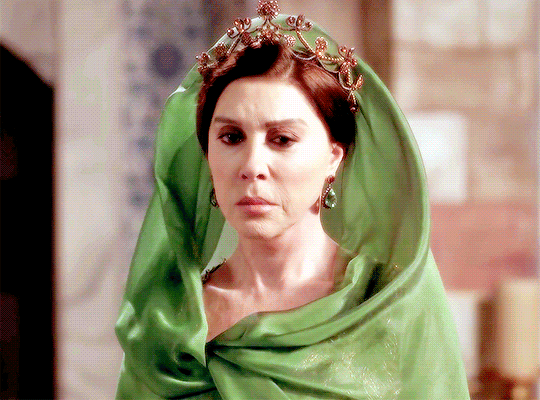
Several things about her were done wrong. First of all, She was not Crimean princess. There are two possibilities that although contradicts one another counters her royal origin. 1. There was another concubine named Ayse,who was daughter of Crimean khan, while she was called Ayse Hafsa for that reason 2.( I agree with that possibility more ) there was no concubine from Crimean family Sultan Bayazid would never let Selim, who was not his favourite, to gain such allie, nor would khan of Crimea risk to marry her daughter to non-favoired prince. Besides, Selim did not have much of a support from Crimea during his Rebellion.
As we more or less agreed that Ayse Hafsa was not Crimean, now we have to agree on where she was from. Legendary mother of the Magnificent sultan was actually converted slave of Caucasian origin, therefore she was either Circassian or Georgian.
Third thing about her is her title. Screenwriters both demoted and promoted her in this case. She was not "Valide Sultan" as we know today, first holder of that title would be Nurbanu 40 years after her death. She was Sultan and respected mother Padisah yes,but those two honours never joined for her. She was simply " Mother of Sultan Suleiman",who had title of Sultan instead of Hatun. While Nurbanu was full fledged "Valide Sultan" and was addressed so. Despite not being Valide Sultan, she was the first slave in Ottoman history, who was elevated to Status of Sultan that was never underlined in the show.
Other mistakes about her are how they represented her pre-1520 life, which I will discuss in Part 3 about "Titles, ranks and traditions" and her relationship with daughters- in law, that will be discussed in part 2, that will be specifically about relationships.
2. Ages of Suleiman's sister.
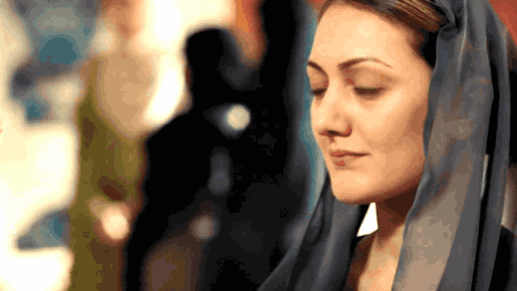
In the show Suleiman Seems to be older, followed by Sah or beyhan, Fatma being somewhat middle and Hatice as baby of the Family, while actually going backwards. One thing I want to make clear is that all the full sisters of sultan were older than them(before 1522 of course), half sister could have been either younger or older. So Fatma, Beyhan and Hatice despite being portrayed as younger sisters were definitely older. A more accurate sequence would be:
Hatice- c. 1490
Fatma: 1491-92
Beyhan: most likely 1493
Suleiman: 1494
Hafsa: 1495
Sah-huban: 1500
Suleiman also had at least three brothers orhan, salih, who seemed to be older than Suleiman, a sister who likely died during childhood and Shehzade sultan or Hanim sultan, who was either another sister or perhaps she never existed and all the little sources about her is actually about hatice.
3. Origin of Sah Huban Sultan.

She was not the daughter of Hafsa and older sister of Hatice, she was actually the youngest of shown siblings,born as the only child of an unknown concubine registered as " The mother of Sah Huban Sultan".
4. Origin of Hurrem

In the show she was portrayed to be Crimean and was addressed as " Russian slave" numerous times. However, she was actually from Ruthenia, it was then part of the Polish crown, now it's part of Ukraine, so definitely not Russian.
5. Forgotten Children
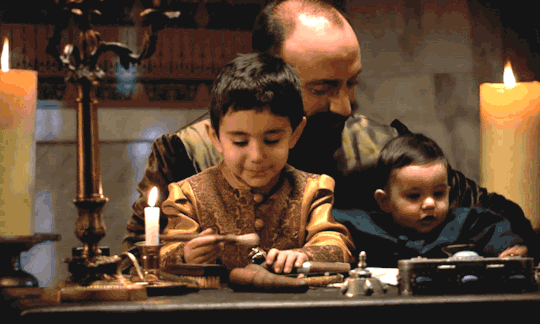
Apart from the six children that were shown in the show, Suleiman had four other children. Three sons and a daughter.
Shehzade Mahmud and Shehzade Murad were born before Hurrem arrived and had different mothers. Mahmud was the eldest born in 1512, Murad was younger than Mustafa born in 1519. Raziye was born between 1513 and 1518, but most likely she was born in 1513-14 as she seems to be the second child and old enough to be considered Mahidevran's(which is by the way false). All three of them died in 1521 as the result of the plague.
The fourth child Shehzade Abdullah was born as the fourth child of Hurrem and Suleiman, born in 1525 and died in 1528. His date of birth is kind of troubling, some historians argue if he was born in 1525,some even say he was Mihrimah's twin, but considering no birth of twins registered, definite ages of other kinds and his appearance in Hurrem's letters Abdullah seems to be born in 1525.
6. Nurbanu's Triplets

Mistakes about the birth of Selim I daughters are more or less clear, let's speak about Selim II as well.
In the show, triplets- Sah, Esmahan and Gevherhan were introduced as younger twin sisters of shehzade Murad. In reality, all three were older but certainly not twins, Sah was not even Nurbanu's daughter, she shared the birth year with Gevherhan though, both were born in c.1544, then was Esmahan in 1545, Murad in 1546, at this point Nurbanu stopped giving birth to any more kids, last of Selim II's kids was Fatma born in 1559.
7. Origin and death of Gulfem hatun
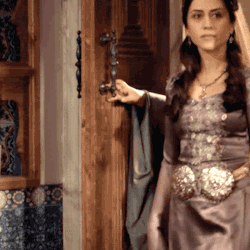
In "Magnificent century" Gulfem is portrayed as Suleiman's first concubine, who bore a son,but lost everything after he died. In reality, Gulfem was one of the highest ranking harem managers, whom Suleiman trusted Hurrem to, she was overseeing her education and well-being, bonding with future Haseki Sultan in the process. Gulfem actually became the closest friend and Confidant of Hurrem, about which I will speak about in part II.
Her death was also portrayed inaccurately. She was not killed for the attempted murder of Suleiman, The closest rumor to it is him executing Gulfem for rejecting him,but she actually died of old age. Suleiman had no reason to execute Gulfem,there is a version were Gulfem exchanges her Night to other concubine to for money to build complex,but there are so many flaws in this theory:
1. There was no such thing in harem as "my turn and your turn"
2. It was strictly against the traditions to call harem servant, especially one from the highest ranks, and considering when it happened in kate nineteen-early twentieth century at caused some probmens,which means tradition was never broken before
3. Gulfem had right to send concubine to Suleiman and even reject one already chosen.
4. Suleiman had no known concubine that time
5. Gulfem was not building anything as all of her projects was already finished.
6. Even if she was building something, it would cost so much mere concubine would never have enough money to help it. Gulfem's daily stipend was 150 akches, which is almost four times as much as Mahidevran's and almost as much as imperial princesses', while titles concubines were receiving 1-6 depending on their status.
7. Even if she needed something she would ask it to either Suleiman, Mihrimah or Sah huban as we know it had happened before and they thought her as family member.
8. Even if we just jump these 7 reasons and somehow accept that Suleiman realy called her that night , he would never kill her for that, she broke no rule, she needed money for project, he would understand this.
9. Gulfem was childhood friend of Suleiman, she was already a high ranking woman when mahidevran came,so she was certainly older than her,who was likely born in 1498-99, she was even older than Suleiman most likely. She was a childhood friend of one of Suleiman's sisters so her date of birth could vary from 1490 to 1493. That would make her between 69 and 72 in 1562. Dieing at such age is nothing strange even today, live past 60 was actually achievement in her era. There is no need to look for intrigue where there is none. Several theory existed,but show chose most dramatic one,that happened to be least likely.
8. Safiye's arrival

I have nothing against the portrayal of her origin, but about how she got in Murad's harem. Accord- ing to MC she was Mihrimah's gift. However,in real life she was raised and educated at Humaşah sultan's court,who later gifted Sifiye(then called Meleki) to her cousin.
9. History of Kösem

In Magnificent Century Kosem young Anastasia was kidnapped as a gift of Safiye to Ahmed per his accession. Actually, Kösem, then called Mahpeyker, was a servant of Handan Sultan and met Ahmed in his mother's personal Gardens. Ahmed developed a "Childhood crush" towards her and Handan,aware of what it could cause, had Kösem beaten up and exiled. When Ahmed ascended her recalled her and brought back.
10. Another forgotten child.

In the show, Şehzade Mehmed died without any kids, while in reality, he had a posthumous daughter born in 1543 named Humaşah. Who grew up to be one of the most powerful women in the Ottoman empire. She was one of two favourite grandchildren of Suleiman and Hurrem and due to the death of her father, she was raised in the household of her grandmother, so she would have been deeply involved in their later life. However, her existence was completely cut out, while the role and importance of Ayse Humaşah, daughter of Mihrimah Sultan was reduced into nothingness.
#history#16th century#historical drama#magnificent century#magnificent century kosem#mc: kosem#medieval women#hurrem sultan#kosem sultan#safiye sultan#nurbanu sultan#gulfem hatun#sultan suleyman#ottomanladies#ottoman history#ottoman#ottoman empire#ottoman sultanas#historical figures#historical events#haseki hurrem sultan#ayse sultan#valide sultan#historical fiction
164 notes
·
View notes
Text
YANGIN KISA SÜREDE SÖNDÜRÜLDÜ
YANGIN KISA SÜREDE SÖNDÜRÜLDÜ
Tekirdağ Büyükşehir Belediyesi İtfaiyesi Süleymanpaşa Hükümet Caddesi Raziye Hatun Sokak eski Kız Meslek lisesi karşısında bulunan metruk binalarda yangın çıktı. Yangının haber verilmesiyle Tekirdağ Büyükşehir Belediyesi İtfaiyesi olay yerine gelerek yangına müdahalede bulundu. Yangın Tekirdağ Büyükşehir Belediyesi İtfaiyesinin başarılı çalışmasıyla kısa sürede söndürüldü.

View On WordPress
0 notes
Photo






(OTTOMAN) WOMEN’S HISTORY MEME| 5 harem servants: Raziye Hatun
Raziye hatun was one of Murad's female companions (musahibe) and maintained a high rank until her death on 26 June 1597, holding the charges of kalfa and vekilharc in the harem hierarchy. She gained Nur Banu's favour in Manisa, where the sultana had accomanied her son Murad. [...] For a certain period Raziye was also protected by the mother of one of Mehmed III's sons, prince Selim (1580-1597); she had presented the young woman to the sultan and for this reason the prince's mother treated Raziye hatun as her own parent. — Maria Pia Pedani, Safiye's Household and Venetian Diplomacy
127 notes
·
View notes
Photo

Family of Kanuni Sultan Süleyman I.
#suleiman i#suleiman#süleyman i#süleyman#kanuni#kanuni sultan süleyman#kanuni sultan#hürrem#hürrem sultan#mahidevran#mahidevran hatun#Mahmud#mehmed#murad#Raziye Sultan#raziye#mihrimah#mihrimah sultan#ayse humasah#ayşe hümaşah#ayşe hümaşah sultan#hümaşah sultan#humasah sultan#aya hatun#hacipaşazadeler#sehzade mustafa#nergissah#Nergisşah Sultan#Şah#şah sultan
84 notes
·
View notes
Note
What if Raziye was Firuze's daughter? How would the plot evolve?
It would reinforce Firuze's power and presence as a rival to Hürrem and consolidate the alliance surrounding her. That said, it wouldn't be as much of a victory as a son would. Hürrem would probably keep trying to kill or otherwise get rid of both Firuze and Raziye though. That said, come episode 76 this would probably force Süleyman to marry Firuze as well as Hürrem. Although since Süleyman never fully fell out of love with Hürrem, I can see his love for her having more staying power than his love for Firuze.
8 notes
·
View notes
Text
》Mahidevran Sultan《

Gerçek adı : Malhurub İdarovna
Doğum tarihi ve yer : 1498 / Taman yarımadası(Anapa civarı)
Ölüm tarihi ve yeri : 2.03.1581. Bursa
Babası : İnarmaz oğlu İdar Mirza
Annesi : Mengli Giray kızı Nazcan Hatun
Ağabeyi : Bitu Mustafa Paşa
Ablaları : Fatı Şahıdevran Hatun ve Akile Hatun
Kardeşi : Belkis Hatun
Eşi : Sultan 1 Süleyman
Evlilik tarihi : Şubat 1512
Çocukları : Şehzade Mahmud
Şehzade Mustafa
Şehzade Ahmed
Fatma Sultan
Raziye Sultan
~~~~~~~~~~~~~~~~~~~~~~~~~~~~~~~~~~~~~~~~~~~
Real name: Malhurub Idarovna
Date and place of birth: 1498 / Taman peninsula (around Anapa)
Date and place of death: 2.03.1581. Bursa
Father: İdar Mirza, son of İnarmaz
Mother: Nazcan Hatun, daughter of Mengli Giray
Older Brother: Bitu Mustafa Pasha
Older Sisters: Fati Şahidevran Hatun and Akile Hatun
Sister: Belkis Hatun
Wife: Sultan Suleiman 1
Marriage date : February 1512
Children: Şehzade Mahmud
Sehzade Mustafa
Sehzade Ahmed
Fatma Sultan
Razia Sultan
~~~~~~~~~~~~~~~~~~~~~~~~~~~~~~~~~~~~~~~~~~~
Mahidevran Sultan filmde gösterilenin aksine sarı saçlı, yeşil gözlü ve beyaz tenli çok güzel bir Cerkes'ti.
Mahidevran Sultan was a very beautiful Cerkes with blond hair, green eyes and white skin, contrary to what is shown in the movie.
#mahidevran sultan#mahidevran hatun#magnificent century#sultan suleyman#kanuni#şehzade#sultansdaughter#sehzade mustafa#fatma sultan#circassian#ottoman empire
21 notes
·
View notes
Text
Mahidevran Gülbahar Sultan 💚🌟
-Born around 1500, Mahidevran Sultan is a Circassian Princess and Sultan Suleyman's first legal wife.
-Mahidevran was described to be extremely beautiful, with enchanting green eyes and golden hair. Her beauty was why Suleiman named her Gulbahar Mahidevran, which means Spring Rose.
-Ambassador Bernardo Navagero mentionied that Sultan Suleyman was side to side with his wife Mahidevran Sultan, but around the year of 1526 he gave his attention to Hurrem Sultan.
-He sent her son, Şehzade Mustafa, to Manisa and his time there as regent was truly spectacular. Mahidevran Sultan managed his harem, ensured his education, and went to extreme efforts to protect him from poisoning.
-Mahidevran Sultan renewed Valide Ayşe Hafsa's mosuqe and reinnovated it, and started many foundations to help the poor in Konya and Amasya.
-Mahidevran Sultan from the beginning of her son's life to the end of it spent her time protecting her son from his rivals, and ambassador Tevesano in the year of 1553 said that the day Şehzade Mustafa was executed, his mother had sent a messenger to warn her son about his father's plans.
-Mahidevran Sultan is mother of Şehzades Mustafa, Ahmed, and Abdullah. Also mother to Raziye and Fatma Sultan.
-She was a pure hearted woman, who never stained her hands with blood.
Children of Mahidevran Sultan from Sultan Suleyman:
-Şehzade Mustafa (1515-1553)
-Şehzade Ahmed (1518-1520)
-Fatma Sultan (1521-1572)
-Şehzade Abdulla (1522-1525)
-Raziye Sultan (1525-1570)
All there roles were excluded dramatically, except for Şehzade Mustafa and Raziye Sultan who was included as Nazenin Hatun’s daughter in the fourth season of the series.

16 notes
·
View notes
Photo
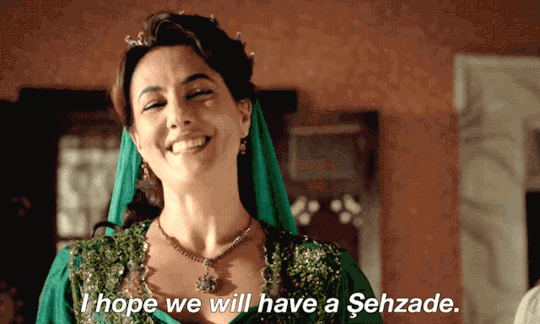
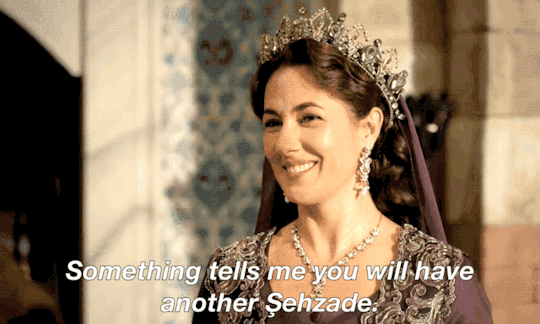


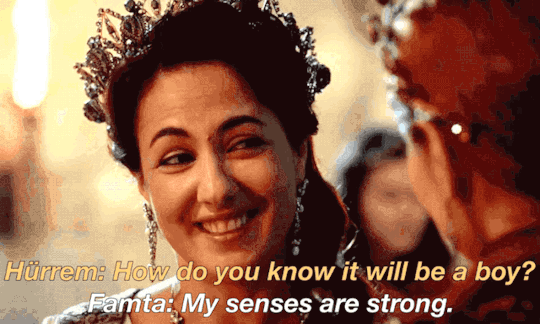

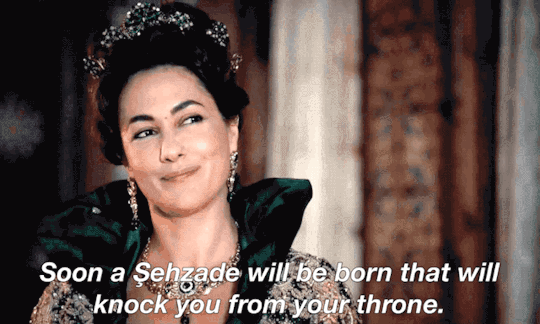
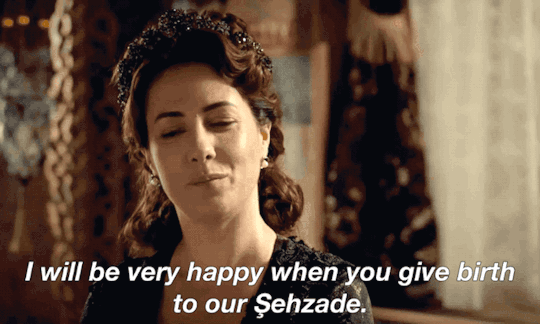
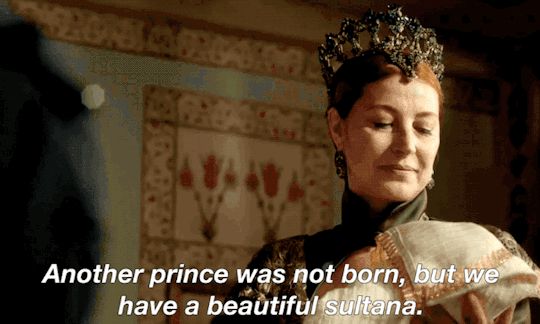
“May Allah protect her from the evil eye...”
#Muhteşem Yüzyıl#Magnificent Century#mcedit#perioddramaedit#weloveperioddrama#period drama#perioddrama#Muhtesem Yuzyil#wspaniałe stulecie#Hurrem Sultan#Fatma Sultan#The Conspiracy#The Secrets of Fatma Sultan#The Offensive#The Execution of the Head of the Janissaries#Irreparable Loss#MC 4x08#Awkward-Sultana#Raziye Sultan#Nazenin Hatun#Afife Hatun
42 notes
·
View notes
Photo








Ezgi Eyüboğlu as Aybige Hatun Raziye Sultan
#ezgi eyüboğlu#aybige hatun#raziye sultan#mahidevran sultan#sehzade mustafa#nur fettahoğlu#Mehmet Günsür#magnificent century#muhteşem yüzyıl#muhtesem yuzyil#wspaniałe stulecie#mine
61 notes
·
View notes
Photo

Kadınhanı, Raziye Hatun Ve Taşhan https://ift.tt/3zhSFCd

Kadınhanı, Raziye Hatun Ve Taşhan
January 02, 2022 at 11:05PM
0 notes
Text
Kanuni Sultan Süleyman Kimdir

Kanuni Sultan Süleyman Kimdir
Kanuni Sultan Süleyman Dönemi (1520 – 1566) – Osmanlı Devleti 10. Padişahı, 75. İslam halifesidir. Kanuni Sultan Süleyman kimdir?
Hayatı, Kanuni Sultan Süleyman nasıl öldü eşi Hürrem ve çocukları kimdir? Kanuni Sultan Süleyman neler yaptı, kimlerle savaştı?
Kanuni Sultan Süleyman Kimdir?
I. Süleyman, Sultan Süleyman-ı Evvel; 6 Kasım 1494, Trabzon – 7 Eylül 1566, Zigetvar
Osmanlı İmparatorluğu’nun onuncu padişahı ve 89. İslam halifesi ve aynı zamanda Batıda Muhteşem Süleyman, Doğuda ise adaletli yönetimine atfen Kanunî Sultan Süleyman olarak da tanınan I. Süleyman, 1520’den 1566’daki ölümüne kadar, yaklaşık 46 yıl boyunca padişahlık yapmıştır.
13 kez sefere çıkan I. Süleyman, saltanatının toplam 10 yıl 1 ayını seferlerde geçirmiştir.Süleyman böylece imparatorluğun hem en uzun süre görev yapan hem en çok sefere çıkan ve de en uzun süre sefer yapan Osmanlı Sultanı olmuştur.
Kanuni Sultan Süleyman; Osmanlı Devleti’nin 10. sultanı ve İslam halifelerinin yetmiş beşincisi. Babası Yavuz Sultan Selim Han, annesi Aişe Hafsa Sultan olup, Kanuni lakabıyla meşhur oldu. Avrupalılar Büyük Türk ve Muhteşem Süleyman lakaplarını verdiler.
Muhteşem Süleyman Hayatı Kısaca
10. Osmanlı Padişahı Kanunî Sultan Süleyman (I. Süleyman) 6 Kasım 1494 tarihinde Trabzon’da doğdu.
Halife – İki Kutsal Caminin Hizmetkârı
I. Süleyman 1520 yılında, babası I. Selim’in ölümünün ardından tahta çıktı. Batıda Belgrad, Rodos, Boğdan ve Macaristan’ın büyük kısmını imparatorluk topraklarına kattı.
1529 yılında Viyana’yı kuşatsa da çeşitli sebeplerden ötürü bu kuşatma başarısızlıkla sonuçlandı. Doğuda, Safevîlerle yapılan savaşlar sonrasında Orta Doğu’nun büyük kısmını ele geçirdi.
Afrika’da imparatorluğun sınırları Cezayir’e kadar uzanırken; Osmanlı Donanması ise Akdeniz’den Kızıldeniz’e kadar olan sularda hakimiyet kurmuştu.
I. Selim’den 6.557.000 km2 olarak devraldığı Osmanlı İmparatorluğu’nu, padişahlığı döneminde 14.893.000 km2’ye ulaştırmıştır.
Zigetvar Kuşatması’nın sonlanmasından bir gün önce, 7 Eylül 1566 tarihinde 71 yaşındayken hayatını kaybetti ve yerine oğlu II. Selim geçti.
Hüküm süresi ; 30 Eylül 1520 – 7 Eylül 1566
Kanunî Sultan Süleyman’dan önce gelen padişah I. Selim, sonra gelen padişah ise oğlu II. Selim’dir.
Sultan Süleyman’ın eşleri sırasıyla; Hürrem Sultan, Mahidevran Sultan, Gülfem Hatun, Fülane Hatun
Hürrem Sultan, Sancak beyliği veya 1520’deki tahta çıkışının ardından haremine girdiği tahmin edilen cariyelerindendir. Hürrem Sultan, 1521’de Mehmed’ı, 1522’de Mihrimah’ı, 1522 veya 1523’de Abdullah’ı, 1524’de Selim’ı, 1525’de Bayezid’ı, 1531’de Cihangir’ı dünyaya getirdi. 15 Nisan 1558’de vefat etti.
Toplam 11 çocuğu vardır, çocuklarının isimleri; Şehzade Mahmud, Şehzade Mustafa, Şehzade Murad, Şehzade Mehmed, Mihrimah Sultan, Şehzade Abdullah, Raziye Sultan, Şehzade Ahmed, II. Selim, Şehzade Bayezid, Şehzade Cihangir
Kanuni Sultan Süleyman Dönemi
Yavuz Sultan Selim’in tek oğludur. Annesi Hafsa Sultan Kırım Hanı Mengli Giray’ın kızıdır. Kanuni Süleyman, Trabzon’da, babası orada sancakbeyi iken doğdu, Zigetvar Seferi sırasında 71 yaşında öldü. 46 yıl tahtta kaldı ki, bu Osmanlı padişahlarının en uzun saltanat süresidir.
Kanunî Sultan Süleyman, 1520’de babası Yavuz Sultan Selim’in beklenmeyen ölümü üzerine 25 yaşında tahta çıktı. Saltanatı hemen hemen hep savaşlarla geçti. 29 ağustos 1521’de Macaristan’ın en önemli kalesi, kilit noktası olan Belgrat’ı aldı. 1522’de Rodos adasını ele geçirerek buradaki Rodos şövalyeleri devletine son verdi. Almanya İmparatoru Şarlken’in eline esir düşen Fransa Kralı I. François (Fransua) nın yardım istemesi üzerine, Şarlken’e karşı savaş açtı. Mohaç’ta 2 saat içinde Macar ordusunu yok etti. Macaristan’ı haritadan sildi. Bec’i (Viyana’yı) kuşattıysa da bastıran kış üzerine 16 ekim 1529’da kuşatmayı kaldırdı.
1532’de Almanlar’dan Graz şehrini aldı. 1534’de çıktığı Irak seferinde Hamedan’ı, dünyanın en ünlü şehirlerinden biri olan Bağdat’ı aldı. Irak’ta Safevîler’in egemenliğine son verdi. Doğu Anadolu’da İran’ın elinde bulunan son toprakları Erzurum’la Van’ı ele geçirerek Türkiye’nin bugünkü doğu sınırlarını çizmiş oldu.
1536’da Korfu, Bordan (Moldavya) seferlerinden sonra düzenlediği Budin seferinde Macaristan’ın yönetim şeklini değiştirdi, bir eyalet olarak İstanbul’a bağladı. Estergon seferiyle, Macaristan’ı Almanya’nın istilasından kurtardı. 1547’de Almanya – İspanya ile yapılan barışta V. Karl (Şarlken) en ağır şartları kabul zorunda kaldı. Osmanlı İmparatorluğu’nun Avrupa’daki egemenliği en yüksek noktasına çıkmıştı.
Kanuni Süleyman 1553’te üçüncü defa İran üzerine yürüdü. Karabağ’ı, Nahcıvan’ı aldı. İki yıla yakın süren bu seferden dönerken, 35 yıl içinde Osmanlı İmparatorluğu’nu iki kat genişletmiş bulunuyordu.
Estergon Zaferi
Kanunî’nin en büyük zaferlerinden biri Estergon Seferi’dir. Bir yıl süren bu seferde, Viyana ile Budin arasındaki en önemli kale olan, Türk akıncılarının bundan böyle başlıca merkezlerinden biri haline gelen Estergon, Almanlar’dan geri alındı.
Bali Paşa’nın 24 kasım 1542’de kazandığı bu büyük zafer, Macaristan’ı Alman imparatoru’ nun istilâsından kurtarmıştı. Yalnız, Almanlar’ın giriştiği o taarruzun cezasını vermek gerekiyordu. Kanunî’nin bu seferi (1543) maksadı sağladığı gibi, Macaristan’ı Osmanlı Imparatorluğu’na daha sıkı bağlarla bağladı. Bu sıralarda, 1543 yazında, Barbaros da batıdan V. Karl’a (Şarlken)e ağır darbeler vurdu, Nice’i aldı, Roma’ya 15 km. yaklaştı, Fransa’yı himayesine aldı.
19 haziran 1547’de Almanya – İspanya ile barış yapıldı; V. Karl, en ağır şartları kabul zorunda kaldı; Osmanlı devletine yıllık haraç vermeyi bile taahhüt etti. Avrupa’da Osmanlı İmparatorluğu’nun nüfuzu şahikasına çıktı, Habsburglar’ın itibarı azaldı. Lehistan, Rusya, Fransa, bazan ingiltere ile Venedik, Osmanlı devletinin nüfuzuna girdiler. Venedik, Rusya ve Lehistan Osmanlılar’a yıllık vergi veriyor, Fransa, Osmanlı devletinden büyük para, silah yardımı görüyordu.
Vefatı
Kanunî Süleyman son çıktığı Zigetvar seferinde 7 Eylül 1566 tarihinde 71 yaşındayken gut hastalığı sebebiyle vefat etti.
Veziriâzam (başbakan) Sokullu Mehmet Paşa, padişahın sağ kalan tek oğlu şehzade Selim (II. Selim) Belgrat’a gelinceye kadar Kanunî’nin ölümünü ordudan sakladı. Cenazesi sonradan İstanbul’a getirilerek Süleymaniye Camisi’ndeki türbesine gömüldü. Süleyman’ın vefatının ardından yerine oğlu II. Selim geçti.
Kanunî, Osmanlı tarihinin en büyük hükümdarlarından biridir, imparatorluğu dünyanın en büyük ülkesi durumuna getirmiştir. Avrupalılar ona «Muhteşem» derler. Türkler de, hakseverliği, yaptığı kanunlardan ötürü «Kanunî» adını vermişlerdir. Kanunî Süleyman Fatih’ten sonra Osmanlılar’ın en büyük devlet, siyaset adamı, Yavuz’ dan sonra da Osmanlılar’ın yetiştirdiği en büyük asker olarak kabul edilir.
Kanunî «Muhibbî» takma adıyla şiir de yazardı.
“Halk içinde mûteber bir nesne yok devlet gibi
Olmaya devlet cihanda bir nefes sıhhat gibi” beyti pek tanınmıştır.
Kanuni’nin Mezarı / Türbesi Nerede?
28 Kasım 1566 yılında 71 yaşında vefat eden Kanuni Sultan Süleyman’ın mezarı ve türbesi Süleymaniye Camii’nde bulunmaktadır.
Kanuni Sultan Süleyman Dönemindeki Faaliyetler Kanuni Sultan Süleyman ne yaptı?
Yavuz Sultan Selim Döneminde Osmanlı Devleti’nin doğu sorunları neredeyse çözülmüştü, bu yüzden Kanuni tahta çıkar çıkmaz batıya yöneldi.
Kanuni Sultan Süleyman Dönemi Özellikleri (1520 – 1566)
Sultan Süleyman Osmanlı hanedanı içinde en uzun süre tahtta kalan padişahtır.
Baba Zünnun ve Kalender çelebi isyanları Sadrazam İbrahim Paşa tarafından bastırılmıştır.
1521’de belgratı alarak 1526 da Mohaç Savaşıyla Macaristanın büyük bir kısmı alınmıştır.
Bunun üzerine Avusturyalılar memnun olmamışlar.Osmanlı Venediği kuşatmış ama ele geçirememişlerdir.1533 İstanbul Antlaşması imzalanmıştır.
Antlaşamaya göre:
Avusturya Arşüdükası Osmanlı Sadrazamına eşit sayılacaktır.(bu madde ile Avusturya Osmanlının üstün oldugunu kabul etmiştir.)
Avusturya savaş tazminatı verecek idi.
1535 de fransaya geçici kapütülasyonlar verildi.
1565 İran ile Amasya Antlaşması imzalandı.(bu antlaşma Osmanlı ile iran arasındaki ilk antlaşmadır.)
1522 Rodos adası fethedildi.
1538 Barbaros Hayrettin Paşa ile
PREVEZE DENİZ SAVAŞI
kazanılmış Akdeniz türk gölü haline gelmiştir.
1534 cezayir,1551 Trablusgarp fethedildi.
Barbaros Hayrettin Paşa ve Kitab-ı Bahriye adılı kitabıyla
PİRİ REİS
Osmanlı deniz hizmetinde görev yapmışlardır.
Ünlü şarkiyâtçılarından Ortalon’un şu sözleri onun nasıl bir padişah olduğunu göstermesi bakımından önemlidir:
“Sultân Süleyman’ın eserleri bir sıraya konulsa, en alt katta muhârebeleri, onun üstünde bıraktığı âbideler ve en üstte ise, kurmuş olduğu ilmî ve hukukî müesseseler gelir.”
“Gazelleri inceden inceye işlenmiş hayaller ve söz oyunlarıyla doludur. Sade yazmaktan ve zaman zaman ustaca kaleme alınmış kahramanlık şiirleri nazmetmekten hoşlanan bir şairdir.” (Ahmet Atilla Şentürk)
Kenan Işık kimdir
KAYNAKÇA (Başlıcaları): Nihat Sami Banarlı / Resimli Türk Edebiyatı Tarihi (Kanuni Sultan Süleyman I, s. 567-570), Prof. Dr. M. Tayyip Gökbilgin / Kanuni Sultan Süleyman (1992), Ahmet Atilla Şentürk / Osmanlı Şiiri Antolojisi (1999), Coşkun Ak / Şair Padişahlar (2001), Güler Tüzün / Muhteşem Süleyman (Tarihte Olağanüstü Kişiler, s.19, 2004) – Kanuni (Britannica Bilgi Hazinesi, s. 477, 2008), İhsan Işık / TEKAA (2006), Yavuz Bahadıroğlu / Kanuni Sultan Süleyman: Muhteşem Padişah (Osmanlı Tarihi, s.157-189, 2009), Mustafa Armağan / Avrupa’nın Patronu Kim Olacak? “Kanuni’nin casuslarından mektup var!” (Kır Zincirlerini Osmanlı, s.158-161, 2010).
Read the full article
0 notes
Photo
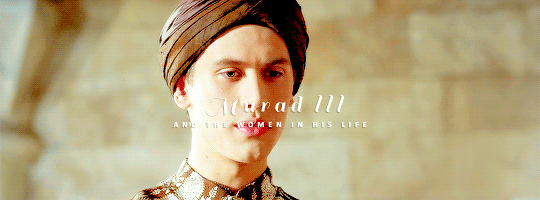
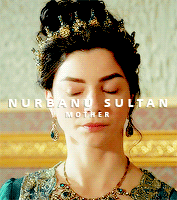

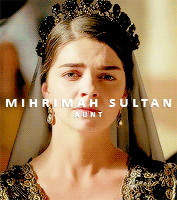
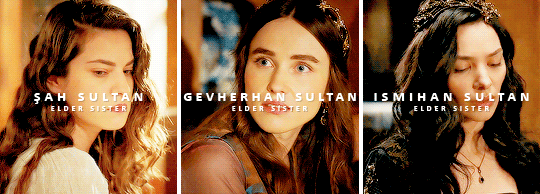
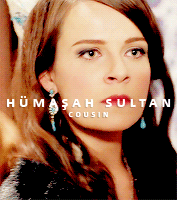

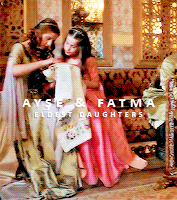

Murad III of the Ottoman Empire + the women in his life
#history#historyedit#ottoman history#murad iii#nurbanu sultan#safiye sultan#mihrimah sultan#sah sultan daughter of selim ii#ismihan sultan daughter of selim ii#gevherhan sultan daughter of selim ii#humasah sultan daughter of sehzade mehmed#ayse humasah hanimsultan#canfeda hatun#raziye hatun#semsiruhsar hatun#ayse sultan daughter of murad iii#fatma sultan daughter of murad iii#ottomanladiesedit#*womeninlife
716 notes
·
View notes
Photo

So I finished all the portraits about Süleyman’s family, except Selim II and his family, but since Selim was the next ruler those portraits will be released later. So here is the family tree of Sultan Süleyman I.
Szulejmán családjának összes portréja elkészült, kivéve Szelimét és családjáét, azonban mivel Szelim az új uralkodó lett, az ő családjának portréi a következő körben fognak kikerülni. Addig is, itt van I. Szulejmán szultán családfája.
#Suleiman the Magnificent#Suleiman I#KanuniSultanSüleyman#süleyman I#Haseki Hürrem Sultan#mahidevran hatun#Mahidevran Sultan#Mihrimah Sultan#rüstem paşa#ayşe hümaşah#Sehzade Cihangir#sehzade bayezid#sehzade selim#Sehzade mehmed#sehzade mustafa#raziye sultan#nergisşah sultan
24 notes
·
View notes
Note
What something you think Hurrem sultan suffered from and other sultanas in SOW didn’t have the same barrier? Would you want to re-write them and have them all share experiences?
A couple of things are
On the first night that she arrives, she and the other new concubines are inspected both in the harem and in the hamam. The second one is extremely invasive and we only see it in this specific instance. We don't see it in any other concubine arrival scene. Not even Nurbanu's. I would either have it still be something that happens to most of the concubines or omit it entirely. It's a particularly awful experience to go through.
The constant mistitling early on. Even after she gave birth to Mehmet she was still called Hatun for a long time. Which is a sharp contrast to Nazenin, who gets called a Sultana even though she gave birth to a daughter. And Kösem gets called a Sultana before she even gives birth. I would probably still call Nazenin a hatun. Or better yet. Get rid of that whole arc and make Raziye Mahidevran's older daughter.
The Valide Sultan and Hatice both on multiple occasions tell her that her children aren't *really* hers. I would write this one as a more common occurrence. As something a blood member of the Dynasty would say to the mothers. And let the mothers be on a scale of discomfort with it depending on who they are as individuals. For instance, Mihrimah could say this to Nurbanu. And then maybe could realise what she'd just done (mirroring what she'd seen her aunts do) and regret it or (if it's at a point where she's still alive) Hürrem could call her out on it.
15 notes
·
View notes
Photo


KUTLUĞ ATAMAN
http://www.kutlugataman.com/
Kutluğ Ataman, born in Istanbul in 1961, is an artist whose main medium of expression is the moving image.
THE PORTRAIT OF SAKIP SABANCI was commissioned by the Sakıp Sabancı family in 2011, to mark the ten-year anniversary of the Turkish business leader and philanthropist Mr. Sakıp Sabancı’s passing. The multi-image installation, which took almost three years to complete, is formed of approximately 10,000 LCD panels—each one a portrait of one of the tens of thousands of people from all walks of life—who crossed paths with Mr. Sabancı. These are people who he supported and those who worked with him.
KUBA is also the name of a shantytown slum, wedged between tower blocks and the airport in Istanbul. Ataman spent more than two years getting to know the wary, suspicious inhabitants of this illegal, mostly Kurdish neighbourhood, and filming them talk. Forty of these monologues are shown on 40 television sets, each old, portable, junked technological behemoth sitting on its own stand. In front of each TV is a sagging, second-hand armchair. The voices of the people of Kuba - young and old, women and men, defeated and defiant - are with us now. They smoke, they cry, they sing; the subtitles churn through their tales.
Each screen is a talking head, someone sitting at a kitchen table or in a cramped sitting-room, equipped for the most part with just the kind of old furniture we're sitting on. Ataman, invisible behind the camera, occasionally asks a muffled question, but these people don't need much prompting. They've got a lot to talk about.
The longer you listen, and the more you meander from chair to chair, the more you gather that these stories are entwined, in betrothals and blood feuds, jail-time and dead time, which the unemployed men spend in makeshift coffee houses, the women stuck with their kids, or waiting outside the prisons for their husbands' return. Sometimes, they don't come back.
There are drinkers and devout Muslims, thieves and one-time revolutionaries, gamblers and crazy people. The kids have their turf wars, they steal, they do drugs, they have their pitiful fantasies. Here's Ugur with his backwards-facing baseball cap, his winning smile and his dreams of inventing a new type of car. Yalcin who went away to a religious school and got into drug-dealing. Yuksel the cuckolded wife, Raziye and Safiye who long for an education, a way out. Nejla the football-playing tomboy who's probably a lesbian but doesn't know it; Eda crying with her kids, old Emine who lost her children to heroin.
The women often turn to Hatun for support, defiant Mother Hatun, with her gold teeth and her smoker's face and her wonderful eyes and her filthy tongue. Mother Hatun talks about being beaten: "The doctor asked what happened to my face and hands. 'What's it to you?' I said, 'What you should ask is what happens to the women in prison whose newborn babies are cut and thrown in the toilet.' " Sometimes, sitting close to the screen, the floor opens up.
Kuba is a tight-knit place, and these people are in many ways better off - say - than the street kids of Rio and the dispossessed of many other of the world's expanding cities. Kuba isn't - quite - the City of God. According to Ataman, it is a state of mind - rebellious, lawless, cohesive. One inhabitant says that when he first arrived he found a community that was like a village, a family, where no one took account of language, religion or race. Some say it is charming, and speak of the shanty with obvious affection. No one knows why it is so called - it is named perhaps after Cuba, a distant, chimeric ideal. For all its awfulness, its inhabitants feel a deep sense of belonging: "I live here too," one woman says, "So I can't say it's bad even if it is."
Here's Dogan, who read and read and turned himself into a Marxist - after hanging around for a while with fascists (at least he thought they were fascists - "they had 'interesting moustaches' "). Dogan is dogged by his former police torturer, whom he keeps running into in the restaurant and at the horse track.
The stories told by Kuba's 40 characters are often terrifying. In Kuba you can be arrested for writing a petition, for playing Kurdish music at a wedding, or even for buying a magazine. The men go away to "special prisons", or get tortured in the local police station. Police torture is considered almost normal. It comes up again and again, a shadow cast on many of these soliloquies. Then there are the petty feuds, the wife beatings, the crime, the poverty and ignorance.
Places like this surely exist in many cities. Kuba started as a goatherd's shack in a stony pasture. It was followed by another shack, then another. Mud walls and masonry and corrugated iron. We don't see the outside, except for a roof of vine leaves in Hatun's yard, and the glare of daylight beyond a curtained window. Some here say that they have never seen the sea, which is just a short distance away.
Kuba is Ataman's finest work to date. His videos and films have always concerned themselves with the stories people have to tell - aging opera divas, Turkish transsexuals, an Englishwoman obsessed with lilies, people who believe in reincarnation and women who wear wigs. Kuba is many lives, more than a cast of characters, in that after a while one begins to form a bigger picture of their interconnections, shared difficulties, common struggles and complex betrayals. Kuba begins to have the richness of a novel: a mosaic of truths and lies, insight and ignorance, anger and humour and humanity.
There is a lot of specious talk in contemporary art about "breaking boundaries". Mostly, this is inconsequential blather. In this work, Ataman has overcome what I have often previously seen as the limitations of his staging. Moving outside the gallery, and opting for the most basic technological format (never mind the DVD player concealed in the cabinet beneath each television), Kuba succeeds in a way his more apparently sophisticated installations do not. Here, one faces his characters as though we were seated opposite them, as though we were their guests. We are also constantly aware of the bigger picture, stretching away all around us. It is a babble of intimacies.
The jumps and the edits are visible, and the translation makes these people appear highly articulate, which I have no doubt many of them are; equally, many are illiterate and have had barely any formal schooling. Often, their Turkish is poor.
0 notes